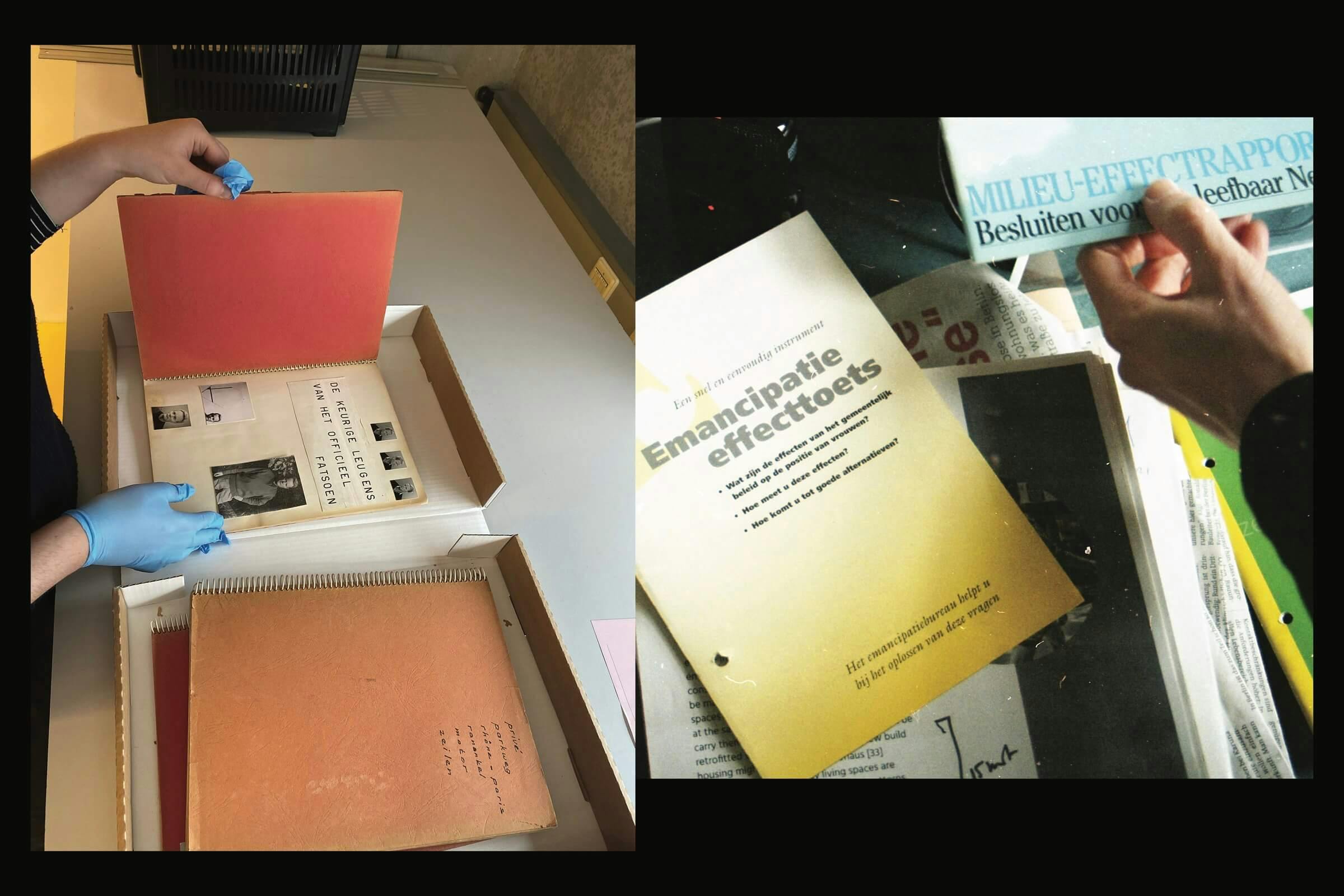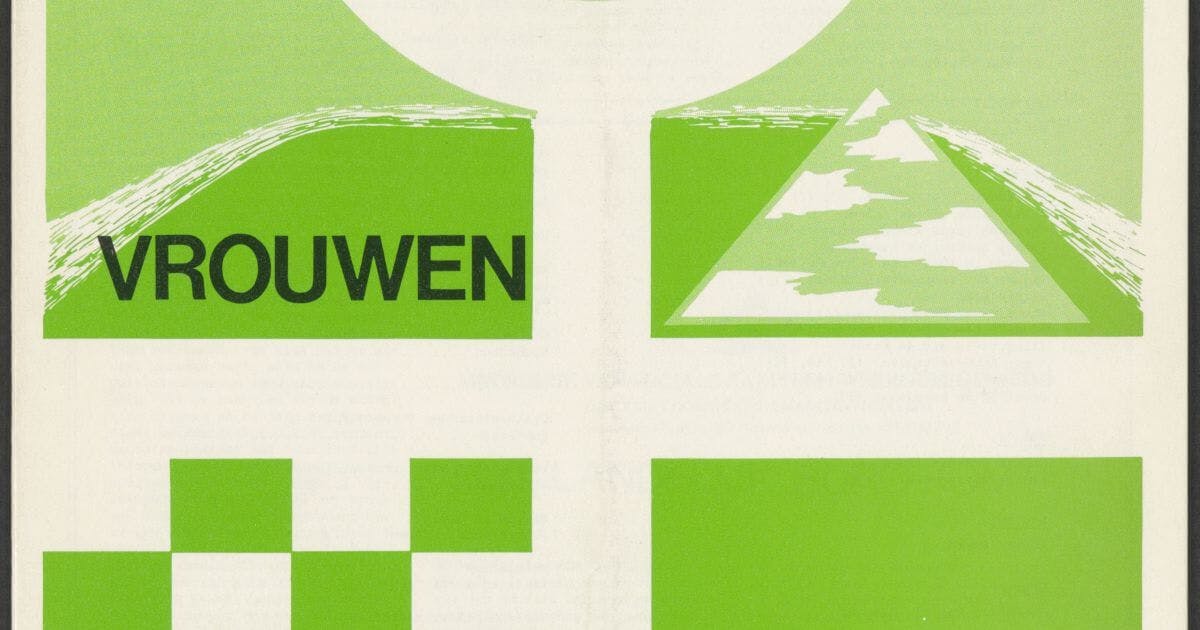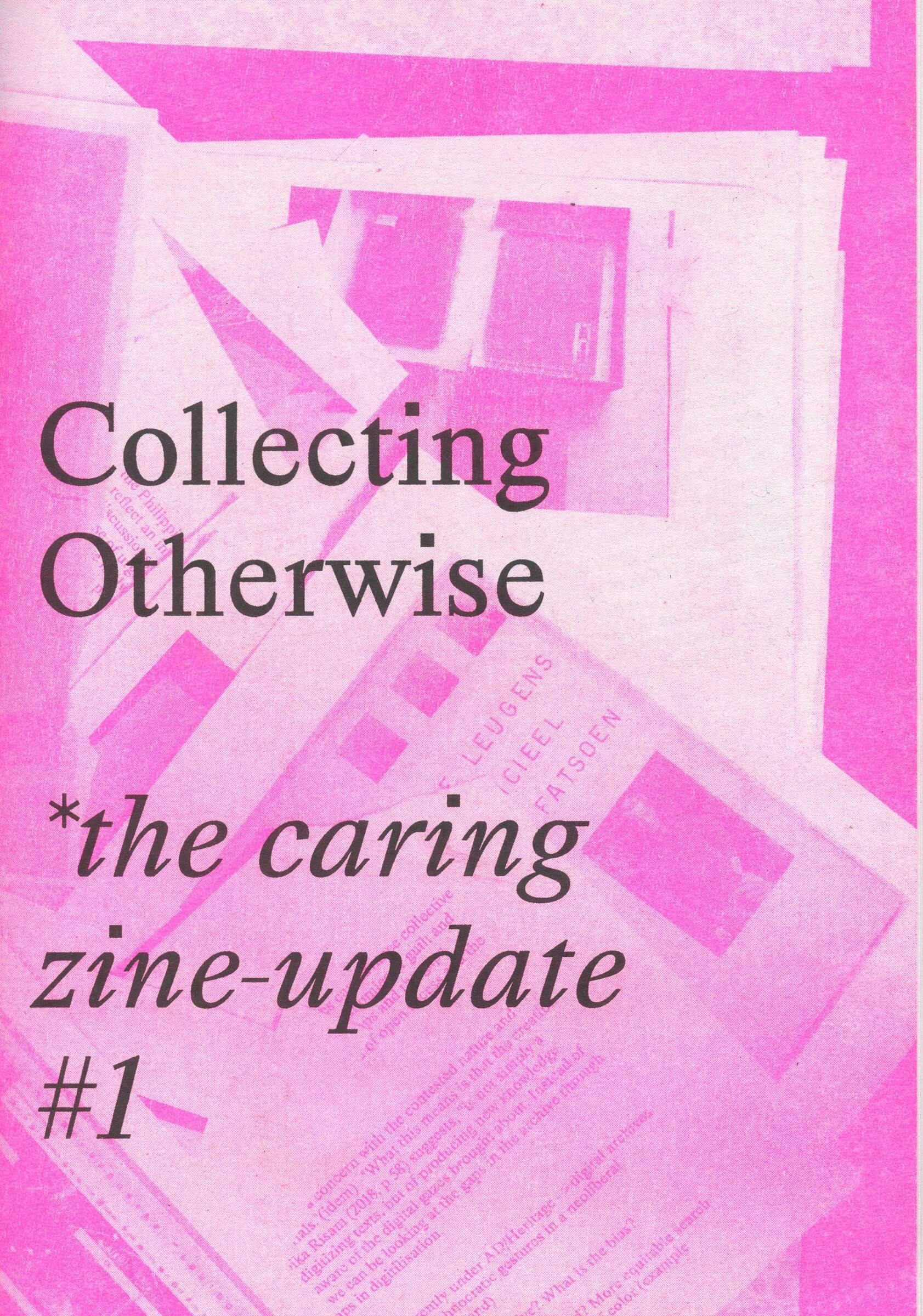Collecting Otherwise
In 2023, Collecting Otherwise enters its third iteration: The Tool Shed: A Testing Ground for Tools and Methodologies, further focusing on developing alternative methods for acquiring, classifying and propagating heritage.
In this iteration, we collaboratively transform Collecting Otherwise to the tool shed, a (set of) generative space(s), which we inhabit collectively to test out thus far developed tools and methodologies in an explicitly applied manner at the Nieuwe Instituut. This means intervening onto case studies (archives, objects, photos, with archive donors) taken from our previous iterations Seen/Unseen and Post/De/Colonial, primarily stemming from Collection Het Nieuwe Instituut. From our previous iterations, we also continue to engage with questions such as: ‘What is the role of institutions today in rebuilding heritage? How do we think — and most importantly, enact — redress?’ and “how can [...] moments of doubt and limitation transform into invitations for other knowledge carriers and agents to enter and reorientate the archive’s infrastructure and protocols?”
Tools
Fom methods to practices
Collecting Otherwise positions itself in line with the Nieuwe Instituut’s ambition to not only make visible the potential of its rich collection, but also identify the gaps it contains, in order to recognise actors and practices that were excluded on the basis of, for example, historical collection policy. The project focuses on undernarrated voices from the collection, in the themes of gender, queering, and decolonial agencies. Collecting Otherwise’s ambition is to contribute through its research iterations to a lasting paradigm shift and concurrent implementation of tools, under the umbrella of the new collection policy Rethinking the Collection.
How to go from methods and observations to practices, when dealing with (institutional) collections? Can we reappropriate the “master's tools'' (Audre Lorde) to rethink, reconfigure, and redistribute the (lived) spaces that keep our legacies? How and where to materialise tools differently, as part of manifold processes of dismantling? How can we make sure that archives and research are made available to be consulted, used, and reclaimed by the respective communities? How can we advance tools for (counter-)archives to be activated, and with it the awareness around contested architectural legacies invigorated? In which ways does the tool shed respond differently or similarly than a workshop, a laboratory, a(n outdoor) kitchen,...? What types of Tool Sheds can we think of that work to build certain tools with certain values?
“Collecting otherwise passes through habilitating (ex)colonial peripheries and bodies to collect for themselves, according to their own interests and needs. This needs to happen in a situated and re-situated way.” (To Be Determined - Trojan Horse Cell, 2021).
Iterative and accessible
The Tool Shed is an accommodating, accessible space that distributes resources to archival communities for both research into and development for reparative archival methods and collections. The Tool Shed allows for commoning tools, (re)distribution of skills, and responsiveness to particular cases or phenomena, through foregrounding the enactment of redress. All the while not foreclosing the ‘always-under-construction’ acts of ‘working’, ‘making’, and ‘doing’. The Tool Shed moves between pause, reflection, rest and shifting directions, and as such has an annotative force. Its ideas and tools(-in-development) are abundant, to be shared across different, hybrid platforms that are part of the Shed - these enable us to ‘show-and-tell’. The Tool Shed is opposed to a tool-kit, which generally responds to a particular (external) context or problem, and moves away as ‘kit’ from the Shed.
This year’s engagements will underline the iterative and accessible nature of the tool shed, as a space with a lowered threshold, where we can necessitate distributed agency. The tools explicitly can be used, retrofitted, and developed elsewhere than their inception at the Nieuwe Instituut and its collection: in other archival- and heritage institutions, archival communities (for instance architects and architectural practices in general, with specific attention to the underrepresented communities therein), and the alternate spaces in which archives and collections originate. The Tool Shed grants space for more tooling or shedding (removal, nourishing, renewal), with windows ensuring exchanges to the outside world. The Tool Shed does not build with a fixed outcome in mind, but rather exists as a testing ground to negotiate (between various actors in the tool shed) archival research and methodologies.
Practicing heritage together
With developments started in the past year, this iteration will see the further progress and implementations of tools such as the *Asterisk, Oral Herstories, and Network-maps, and methodologies such as the Archival Care Rider, Working Group, and Lysergic Secretary. The *Asterisk for instance comes from the necessity to add more contextual and reflective space (operating as a wildcard/joker) in archival tools — emerging as a tool for archival descriptions, accessibility and alternative presentation modes. The *Asterisk, ultimately contributes to a better contextualised, societally relevant, and accessible Collection, representative of all the stories in the archive.
In Collecting Otherwise, we highlight a multi-authored process of practicing heritage together otherwise. Diverse voices bring in diverse tools to understand collections, from more conventional practices to artistic interventions and non-institutional and communal enactments. By documenting our tools and methods on this page, the project team and other collaborators will archive how the tool-shed is taking shape.








